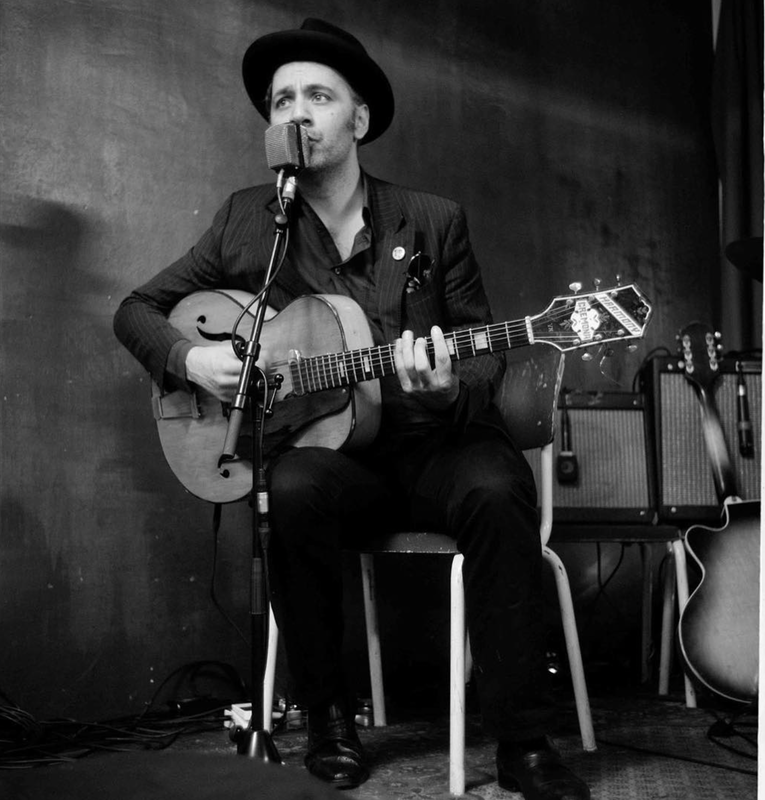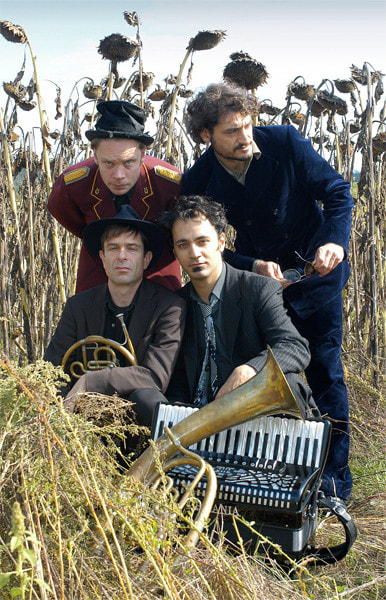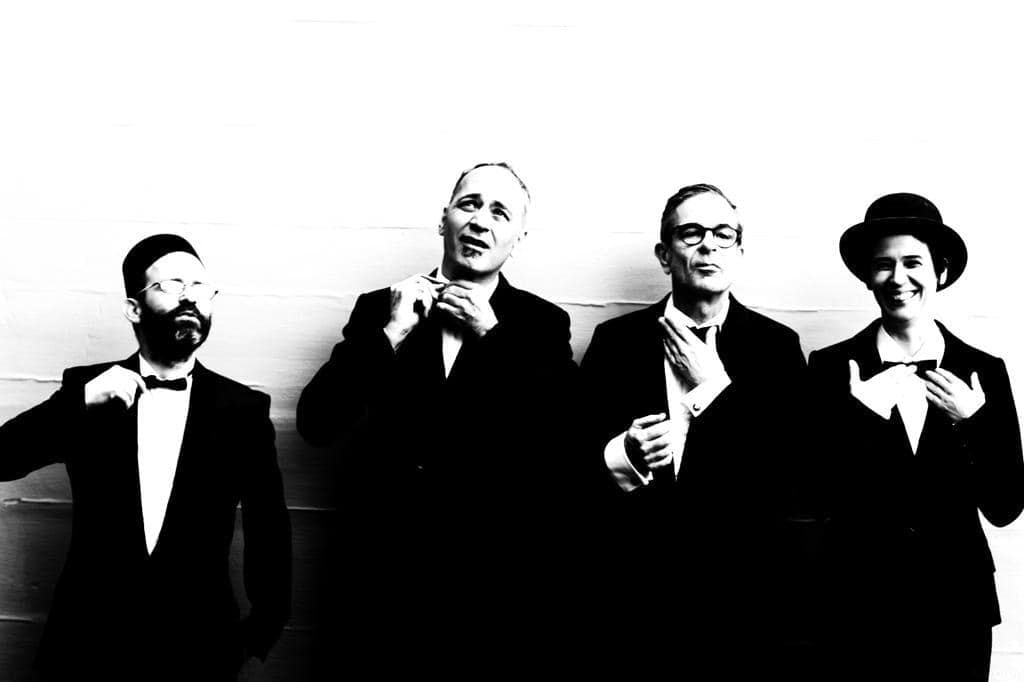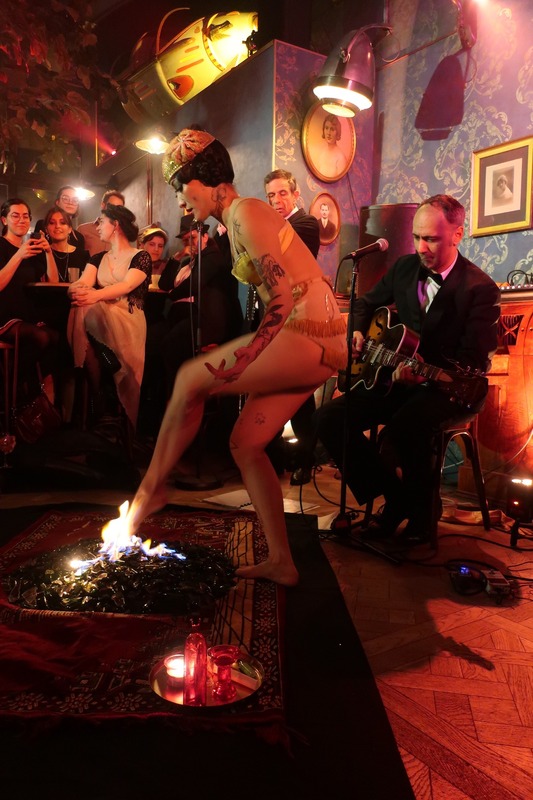|
Indie and Alternative. When those two nebulous terms are used alone in the context of music genres, this only serves audience segmentation over providing concrete music style classification. Only linking a root genre allows a palpable offshoot genre to form, and the commercial feel of those terms is negated, with the focus going back towards the art and away from the consumer. The long game of any creative endeavor requires marketing one's work. But what about the artist who consciously avoids classification, preferring stylistic fluidity over pigeonholing? Do they get thrown into an ambiguous label because some manager/journalist/marketing exec decides, "They'll likely fit here?" That's not segmentation; that's a cop-out tactic, again bringing it back to segmentation. You could call it non-popular music, which it may be, but there's an audience for everything. Artists like Pierre Omer face scenarios like these. The Swiss songwriter has made a steady career writing music that grazes along the roots of rock n' roll with various projects dating back to the mid-2000s. A co-founding member of an unclassifiable, punked-out vaudeville troupe named The Dead Brothers, his influences with this Genevese band ranged from old-world musical territories from Balkan folk to gypsy jazz mixing with carousel waltz-brass rhythms. As a solo artist, Omer continues to avoid remaining both static and modern in style with his projects ranging from garage-tinned solo work, dark electric blues (Los Gatillos), swooning electric folk (Pierre Omer & The Nightcruisers), and a throwback to the popular music of the Depression era with his swing quartet, Pierre Omer's Swing Revue. This year, The Swing Revue will release their forthcoming sophomore effort, Tropical Breakdown, and Omer opens up genre ambiguity and his forging into the steadfast, unclassifiable artist. Photography by Andreas Staebler The release of Tropical Breakdown comes at a coincidental time, given a month prior saw the release of Death Is Forever, the final album from The Dead Brothers. You co-founded The Dead Brothers alongside the late Alain Croubalian and spent considerable time writing and recording together before leaving in 2009. In a way, their last release marks the official end of an era in your life, while Tropical Breakdown marks the beginning of a new chapter. What are your thoughts on this, and can you discuss how you processed your feelings upon learning about Alain's passing in 2021? The end of 2006 is when the original lineup of the Dead Brothers disintegrated, our last show being in San Paulo, Brazil, at Club Inferno. Good name, eh? We all took planes in different directions upon leaving South America, and returning to Europe to get on with my life without the band wasn't easy. Intense, that's the best way to describe the last few years of being a member of the Dead Brothers, so the departure left a big gap in my life and a looming feeling of failure. The band comprised different personalities, and the inability to manage those and make things work between us was very frustrating. We all definitely shared many musical and human adventures with Alain, and he was an interesting guy. In the following years after that split, we hardly saw or spoke to each other. On my side, I kept away from the band's new lineup because I couldn't deal with it and felt it was unfair that Alain retained the band name. But then I said fuck it, I have my projects and focused on those. So, to answer one of your questions: that era of my life ended a long time ago. The day Alain died, I started getting these phone calls and messages; it was like my past life was suddenly reopening and bringing up all these memories. It gave me a strong sense of the significance of my life's adventure in the Dead Brothers. Beat-Man would be the guy to ask what it is like to release both albums so close in time because he kept working with both of us. For me, this new Swing Revue album is a new chapter for the band with a new lineup and new spices. An early incarnation of The Dead Brothers. Photographer unknown. What was the reason for your family’s decision to move to Switzerland, and was the transition easy for you to adapt to at a young age? What was Geneva like while you were growing up compared to how the city is today? Professional reasons are my guess. I don't remember really what it was like, but I was too young to have good friends I would miss or that kind of thing. And anyway, my memory is that we kept going back and forth. It was bizarre because on one side was this big cosmopolitan city, and on the other was this house in the country outside Geneva. We stayed with my grandparents, who were old-school country people. A farm was on the other side of the road, and I loved hanging around that place. The peasants were out of a Zola story; they hardly had running water. In an interview with Wüste Welle Radio, you note that AC/DC is the first band who influenced you in the rock music vein, yet you’re not exactly the average rock musician. Your catalog of work carries a genre diversification reputation that links back to roots music. We can hear blues and country in Pierre Omer & The Nighcruisers, gypsy jazz and fado in The Dead Brothers, folk music in Los Gatillos, and swing jazz in Pierre Omer & The Swing Revue. Do you credit anyone or an experience in particular who turned you on to these different genres and really made you branch out into different compositional styles? To tell you more about my childhood, on one side, I had my mum playing Dylan and Beatles records; on the other side, my dad was playing Louis Armstrong, and I found a gramophone and a collection of shellac records in the attic. I was introduced to AC/DC at school when I was seven. As far as I can remember, I always listened to different music genres, but the short answer to your question is Tom Waits because I was fascinated with his ability to blend all these other influences in such a strange way. Let’s get into your performance career. None of the bands you’re in or have been a part of sound anywhere near alike, with the most notorious being The Dead Brothers, whom you’re quoted as a band whose goal is to explore the European roots of the blues. Was this the first band you were a part of that opened your mind to how other styles can complement each other and truly allowed you to challenge yourself as a writer? I already had spent a few years working for a cabaret show when we started the Dead Brothers and every year, we were required to learn a repertoire of 40 or 50 songs ranging from 1930s Berlin Expressionism to Broadway classics, French musette, and even 1980s mainstream. This cabaret took place in a room that hosted free jazz and experimental music concerts, and I was always composing stuff, but I started writing songs later. Due to my many influences, it took me a while to figure out what I wanted to do. The Pierre Omer Swing Revue - Photography by Stephane Rosini. What musical or developmental fundamentals or lessons have you learned in The Dead Brothers that you have carried into your other projects? The studio experiences we had taught me a lot! Our first demo was recorded in my room on a minidisc where we had one microphone, with Alain’s mouth a few centimeters away while our drummer was at the other end of the room. Between those two, you had a tuba, a trombone, my guitar, and my accordion, where I would step closer to the mic every time I played a lead melody and then lean back again to play the rhythm. We decided to produce our first album like that; it gave us a strong sense of dynamics and sound balance. We reinvented the old way of recording! The second album was split-recorded between a local studio in Geneva run by our friend David Weber and over on a farm in south France by a producer named Bob Drake, who blew our minds! Not only was Bob a great musician, but he was also ahead of his time working with computers. Bob was a real inspiration; he was quick to understand what we were trying to do and excited to try all sorts of sound experiments. Let’s talk about The Swing Revue; how long were you sitting on this throwback idea before Swing Cremona’s debut in 2013? When did you know the timing was right to start the project, and what is your history with the band’s lineup today? I've really been into swing music, especially Django Reinhardt, since I was a teenager. Then, I always throw in a swing number here and there with the Dead Brothers and my other projects. When the Dead Brothers split, Beat-Man told me I should have a swing band. But I did other things until 2013, the year I was offered to put together a band for an event in Geneva. I'm still determining precisely why I decided to take the opportunity, but I did. I put together 15 songs and called up Christoph [Gantert], who played trumpet with the Dead Brothers, and Julien [Israelian], a drummer with whom I had been doing many different things like theater music and touring as a two-piece. Then we all wore tuxedos, and that's how it started. We then added Jean-Philippe "JP Tornado" Geiser on double bass; he was also part of the Dead Brothers' first lineup on the tuba and the banjo. We had another bass player when Geiser left, and then Geraldine [Schenkel] stepped in on keys; she's someone I had already played with over three decades ago in the cabaret show mentioned earlier. How strong is Switzerland’s scene today for swing jazz music, and where is the scene for The Swing Revue healthy across Europe? Have you tested the waters across seas yet for this band, and are there any plans or desires to take The Swing Revue internationally? Just after we started playing, this electro-swing wave hit the dance floor. The word swing became "hip," and we benefited from that. But electro-swing is actually the polar opposite of swing music; the pulsation is the genre's antithesis. We performed in Lindy Hope clubs, but we didn't fit in that revival scene at all. Somehow, our swing music has a garage attitude and sound, but we really don't fit anywhere. The Swing Revue regularly plays in Switzerland, Germany, and sometimes France, and there are plans to get around more! We're neither a swing band in the traditional sense nor a garage band, so it's harder to get around, but we manage. A tour will occur in November with dates in Switzerland, Germany, France, and Belgium. How did you want this record to differentiate from Swing Cremona when writing Tropical Breakdown? There are fewer covers on the new album, obviously, but what did you specifically want to stand out on the album that wasn’t prevalent in the first record? The first album was done quite spontaneously as a tribute to that music. But then, after a few years, I needed to get away from that traditional approach as much as I like swing. So we started trying to mix different influences into our sound, and it took me a while to find the right balance and sound. We tried mixing reggae at some point, but that didn't get anywhere. Finally, we still have this swing base, but from there, we explore different territories like film noir sounds or Latinish rhythms. The keyboards allow us to develop new arrangements and turn on the lights in some corners of our little world we hadn't explored yet. Lalla Morte fire walking in Geneva with The Swing Revue. Photography by Karin Feusi. What plans for The Swing Revue that you can reveal are in the works?
Well, Tropical Breakdown is about to come out, so we're trying to let the world know it's out there! We are getting ready for the release tour in November and have already started booking a tour for Spring '24, which will take us to the UK, Spain, and the north of Germany. Give Gearhead readers your Top 5 albums, don’t hold back. Only five?? Tom Waits - Rain Dogs Dr. John - Gris Gris Siouxsie and the Banshees - A Kiss in the Dreamhouse Bob Dylan - Blonde on Blonde Suicide - Self Titled Pierre Omer’s Swing Revue’s Tropical Breakdown will be released on October 27th through Voodoo Rhythm Records. Pre-orders are live, and live dates can be found through Radiogram Records. Keep up with everything Swing Revue related via the band's Facebook and Instagram. Interview by Eli Grisham. |
Author
Archives
July 2024
Categories
All
|





 RSS Feed
RSS Feed